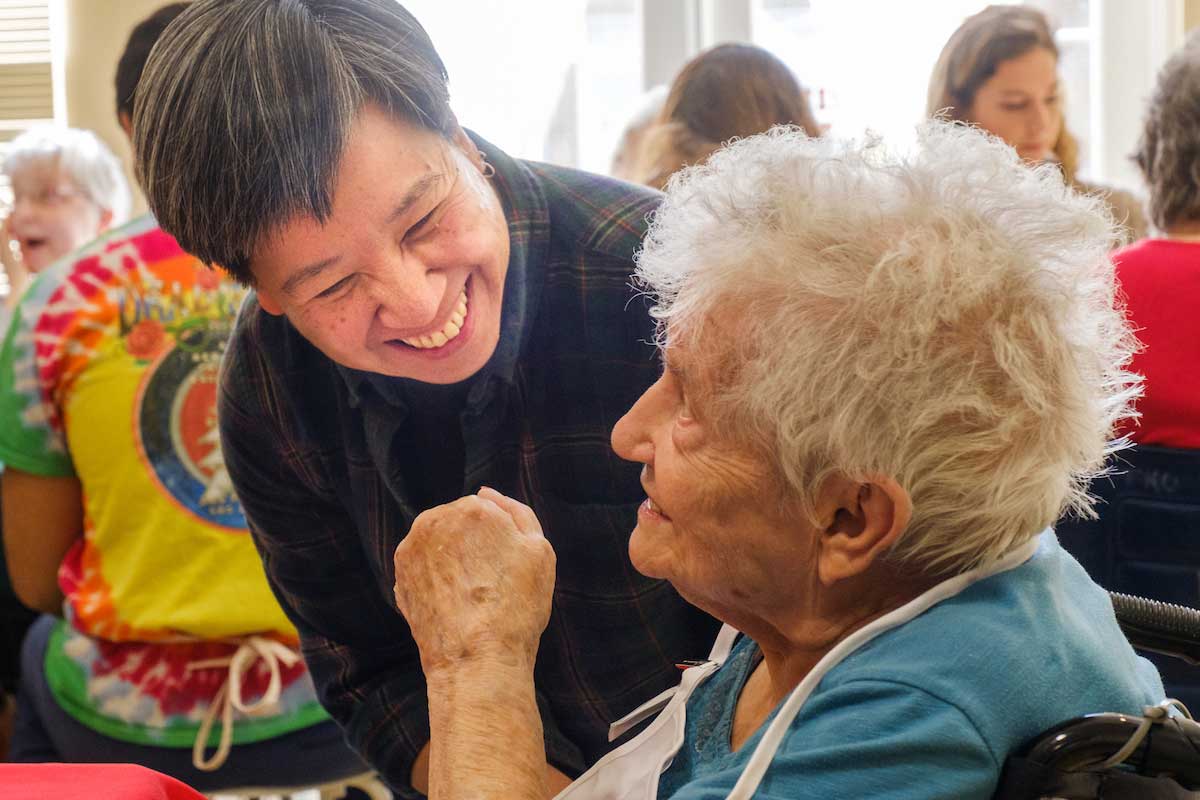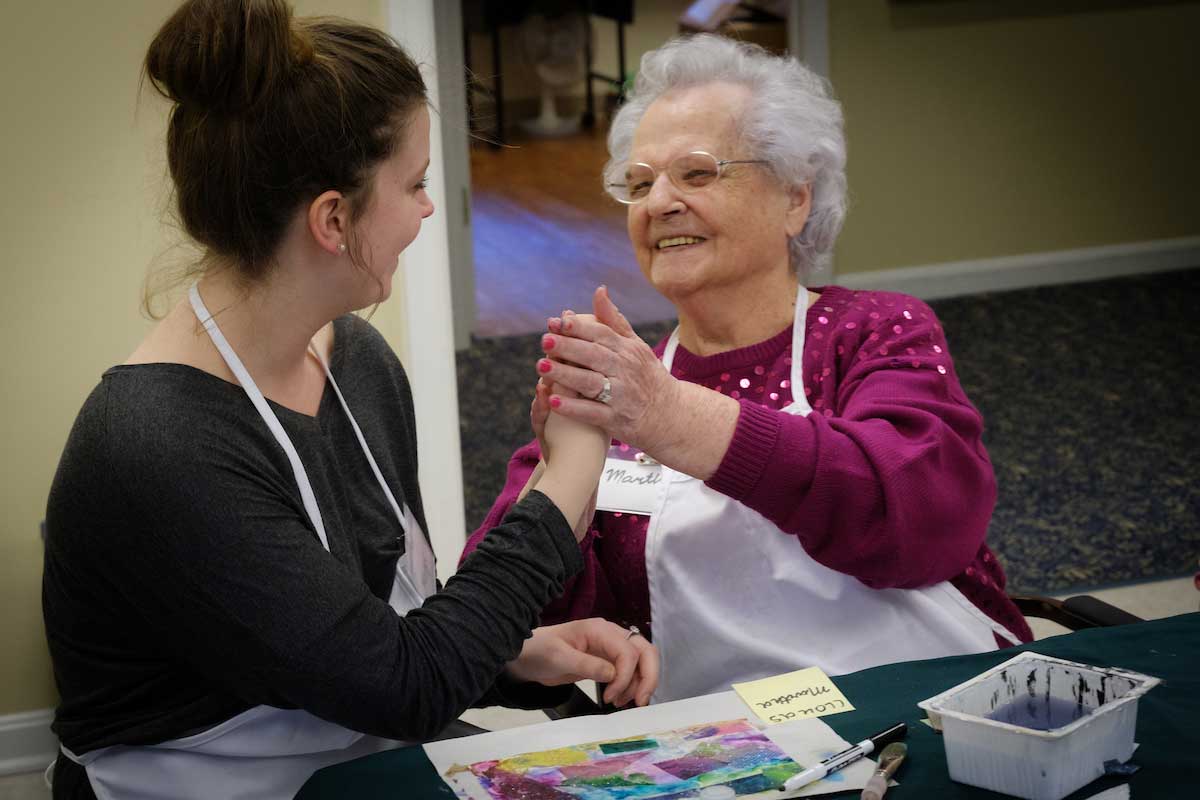The History of OMA
The Journey to OMA

Elizabeth “Like” Lokon’s journey to OMA has been a winding one. Her first love has always been serving as a catalyst for positive change in people’s lives. Beginning her professional career as a teacher, she has experience from pre-school and early childhood, through teaching future teachers in college. She earned multiple degrees–in art, and a PhD in educational leadership–but she wanted to learn more–“In education, you learn about the first half of life–but not the second half.”
The path to connect with how people learn in the second half of life took her through the Master of Gerontological Studies (MGS) program at Miami University. She turned her experienced educator viewpoint towards strategies for reaching people with dementia. She knew what she was looking for – how to make a connection with them. She sought out and worked with programs such as TimeSlips and Memories in the Making, to learn how they were making connections. While these were stellar programs they were still not quite what Like was looking for.
The “aha” moment came when she realized that “abstract art, which transcends language” is something that can be created by–and appreciated by–anyone, regardless of their cognitive ability. This insight merged her love of art, education, and the ability to connect with people wherever they are. Out of this, Opening Minds through Art was born, but not yet fully formed.
As the program was developing, she realized she needed help – lots of help as each potential artist needed an individual one-on-one volunteer to work with them. She discovered her initial Miami student volunteers were learning and benefiting from connecting with those with cognitive impairment. The intergenerational aspect – connecting trained volunteers with older adults living with dementia-- was the final foundational piece of the program.
Since those early days the OMA program has grown exponentially. While maintaining its foundation at Miami where students can participate as volunteers, or in a service learning course, the program has expanded far beyond Oxford. In 2016 the OMA program was at 57 sites in 38 cities, 13 states and three countries. OMA has also received funding from the Ohio Department of Medicaid to replicate OMA at 100 more nursing homes throughout Ohio. Learn more at OMA.org.
